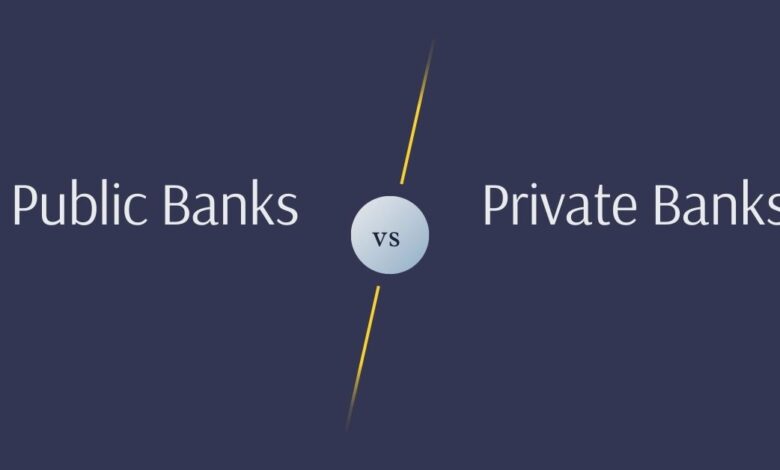Overseas Education Loans: Public Banks vs Private Banks

When exploring financial aid, study abroad aspirants contemplate whether to go with public or private banks for their overseas education loan. To make an informed decision, it is paramount to at least be able to differentiate between the types of banks. This article intends to differentiate between public and private banks to help you understand which caters best to your needs and demands.
Let us get into it!
Which Lender is Best for an Overseas Education Loan?
To get the answer to this question, the first thing you should know is what kind of financial assistance these lenders provide for overseas education. Let us explore the key factors that influence the decision-making process:
-
Quantum of Finance
Quantum of finance is the maximum loan amount a particular bank offers its borrower. All banks follow a standardized approach, and their maximum limit is based on factors such as the course being pursued, the study destination, and the overall cost of education. Compared to education loans for abroad studies by Indian government banks, private banks have a more tailored approach to determining the loan amount.
Government or public banks have a maximum quantum of finance of up to 1.5 crores, whereas private lenders offer up to 75 lakhs when collateral security is available. For non-collateral overseas education loans, the maximum loan limit is 7.5 lakhs for public banks and up to 1 crore for private banks with certain schemes.
-
Interest Rate
Public banks, often government-owned, may offer education loans with lower interest rates compared to private banks. Additionally, they offer a fixed interest rate, ensuring stability throughout the loan tenure. However, private banks provide more stability in choosing between fixed and floating interest rates, making the repayment process more flexible for the lenders. The exact interest rate may differ according to the applicant or co-applicant profile, but a tentative rate in a public bank is between 9-11%, and for private banks, it is 11-13%.
-
Need for a Co-Borrower
Public banks commonly mandate the inclusion of a co-applicant when processing overseas education loans. The co-applicant is often a parent or a guardian who shares the loan repayment responsibility. On the other hand, private banks are more flexible in this regard and may or may not make co-applicants mandatory. However, the requirement also depends upon several factors such as loan amount, course of study, and the academic background of the borrower, etc.
-
Processing Time
Every lender needs a specified processing time to sanction the loan amount. Public banks take up to 25 days to 1 month of processing time for overseas education with collateral due to an extensive bureaucratic process. Private lenders, such as ICICI or Axis Bank abroad education loans are driven by a more customer-centric approach and take 1 week to 10 days for non collateral education loans abroad. In the case of collateral loans, the processing time required by private banks is longer.
-
Moratorium Period and Loan Repayment
Both public and private banks offer a moratorium period during which international students are presented with a financial breather before they commence loan repayments. Public banks typically provide a moratorium period of 6 months to students. Nevertheless, this duration can be extended by 6 more months under certain circumstances or if requested by the loan applicant.
Similarly, private banks also recognize the significance of a moratorium period. However, borrowers must pay either partial or full simple interest once the loan amount is disbursed. After the end of the moratorium period, the repayment of full EMIs begins in both public and private banks.
The choice between public and private banks for an education loan depends on a range of factors some of which are already mentioned above. Public banks often offer lower interest rates, and the convergence of certain government schemes makes the overall process more accessible. On the other hand, private banks provide quicker processing and personalized services to cater to the needs of different study abroad aspirants.
If you are planning for overseas education and looking for critical information on public and private banks such as Bank of Baroda abroad education loan interest rate or the maximum quantum of finance offered by the Axis Bank, overseas education loan advisors can provide better clarification on this context. So, you can connect with them as well.



